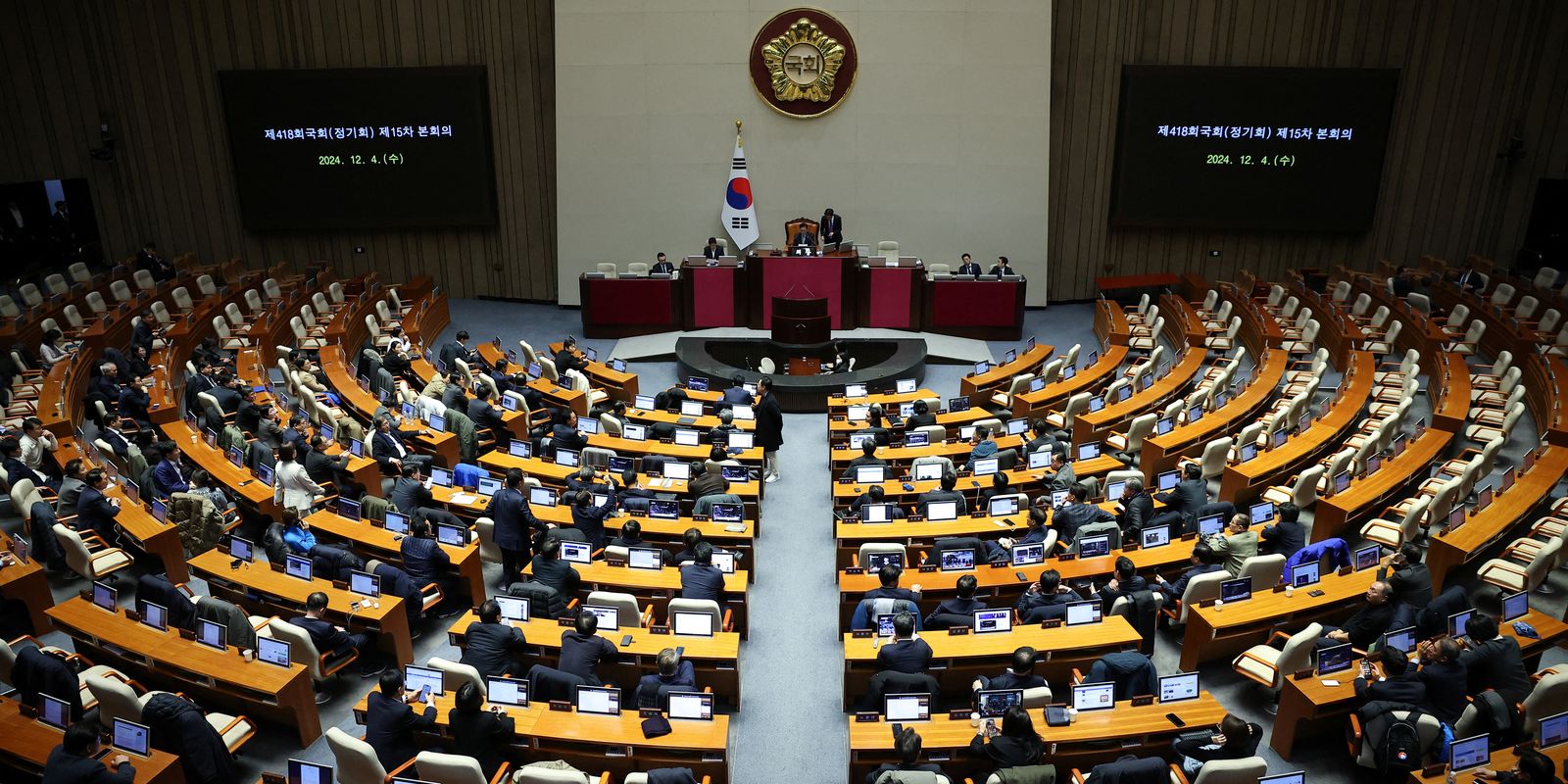South Korea’s acting president, Han Duck-soo, moved on Sunday to reassure the country’s allies and calm financial markets, a day after President Yoon Suk Yeol was impeached and suspended from office under a tentative law. martial.
Han spoke with U.S. President Joe Biden by phone, the White House and Han’s office said.
“South Korea will carry out its foreign and security policies without interruption and strive to ensure that the South Korea-U.S. alliance is firmly maintained and developed,” Han said, according to a statement from his office.
In yet another attempt to stabilize the Asian nation’s leadership, the main opposition party announced it would not seek to charge Han for his involvement in Yoon’s martial law ruling on Dec. 3.
“Considering that the prime minister has already been confirmed as acting president and that excessive impeachments could lead to confusion in national governance, we have decided not to proceed with impeachment proceedings,” Democratic Party leader Lee Jae-myung told reporters.
Prosecutors said Yoon failed to appear on Sunday morning for questioning in a criminal investigation into his martial law ruling and promised to issue another order, Yonhap news agency reported.
Yoon and several officials face possible charges of insurrection, abuse of authority and obstructing people’s exercise of their rights.
The Public Prosecutor’s Office did not respond to calls seeking comment.
Han, a longtime technocrat chosen by the conservative Yoon as prime minister, was promoted to acting president in accordance with the constitution while Yoon’s case heads to the Constitutional Court.
North Korean threat
Yoon’s surprise declaration of martial law and the political crisis that followed spooked markets and South Korea’s diplomatic partners, worried about the country’s ability to deter nuclear-armed North Korea.
Biden told Han that the unshakable alliance between the US and South Korea remains unchanged and that Washington will work with Seoul to further develop and strengthen the alliance as well as trilateral cooperation, including neighboring Japan, Han’s office said.
The White House said in a statement that the U.S. president “expressed his appreciation for the resilience of democracy and the rule of law in the Republic of Korea,” using the abbreviation of the country’s formal name, the Republic of Korea.
Han convened his cabinet and the National Security Council shortly after Saturday’s impeachment vote and promised to maintain military readiness to prevent any breach of national security.
He spoke by phone with the commander of U.S. Forces Korea, expressing concern about the possibility of North Korea attempting military provocations such as launching ballistic missiles or cyberattacks, Yonhap said, citing Han’s office.
South Korea’s partners wanted to see credible and constitutional temporary leadership implemented as quickly as possible, said Philip Turner, New Zealand’s former ambassador to South Korea.
“They will be pleased to see Prime Minister Han take over as acting president,” he said. “He is capable, experienced and highly respected in foreign capitals.”
But even with a sitting president in power, international partners face months of uncertainty before a new president can be elected and a new government established, Turner added.
The Constitutional Court has up to six months to decide whether to remove or reinstate Yoon. If he is removed or resigns, new elections will be held within 60 days.
South Korea’s financial authorities also pledged on Sunday to act as necessary to stabilize markets, while the finance minister said he will announce an economic policy plan by the end of the year.
The Bank of Korea said in a statement that it would use all available policy instruments in conjunction with the government to respond and prevent any escalation of volatility in financial and foreign exchange markets.
The bank said it is necessary to respond more actively to the economic impact than in previous periods of presidential impeachment due to greater challenging external conditions, such as greater uncertainty in the business environment and intensified global competition in key sectors.
South Korea’s financial regulator said in a statement that financial markets should stabilize as recent political events are considered temporary shocks, but it will expand market stabilization funds if necessary.
*Reporting by Heekyong Yang, Josh Smith, Joyce Lee, Ju-min Park, Minwoo Park, Jihoon Lee and Cynthia Kim
* Reproduction of this content is prohibited















